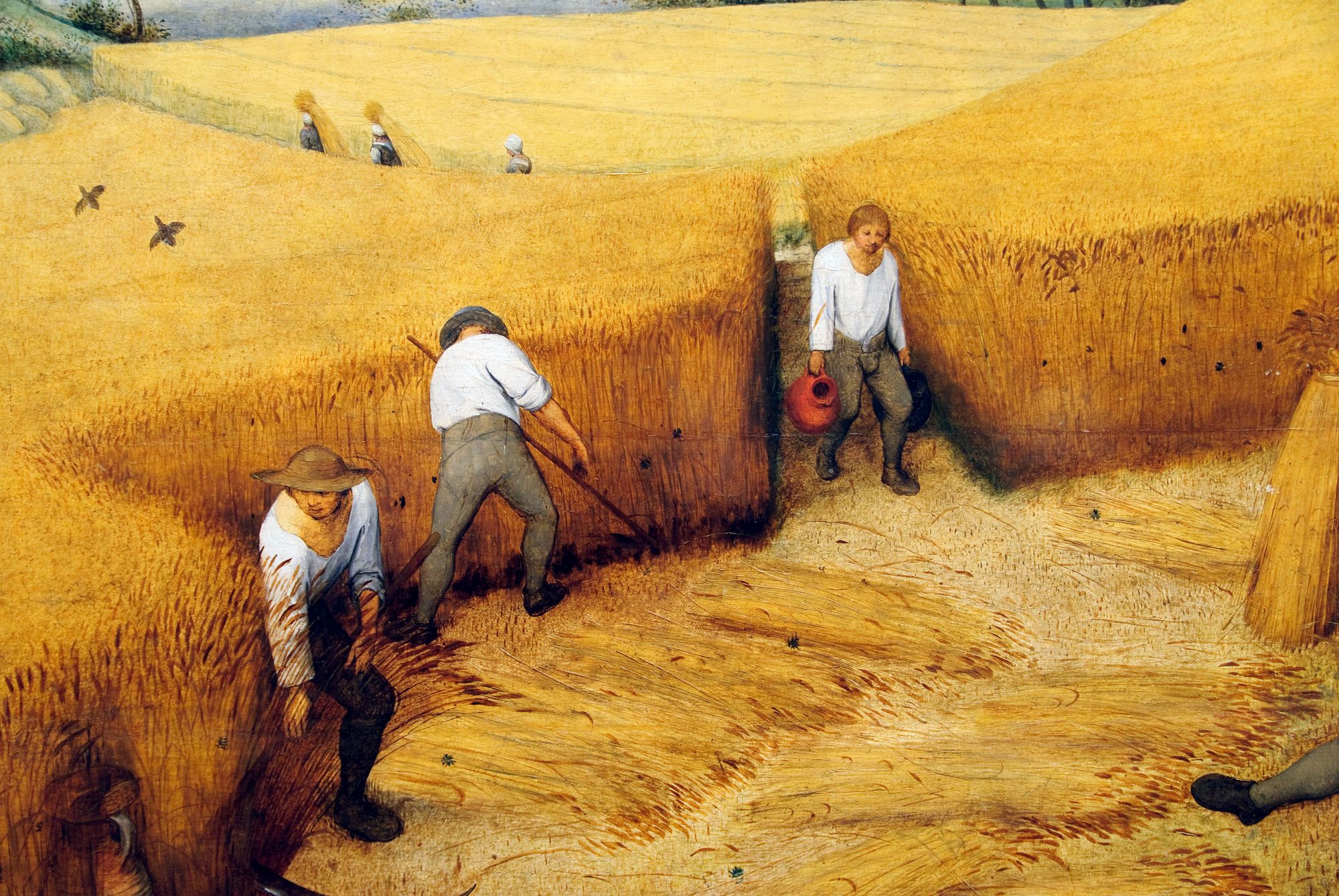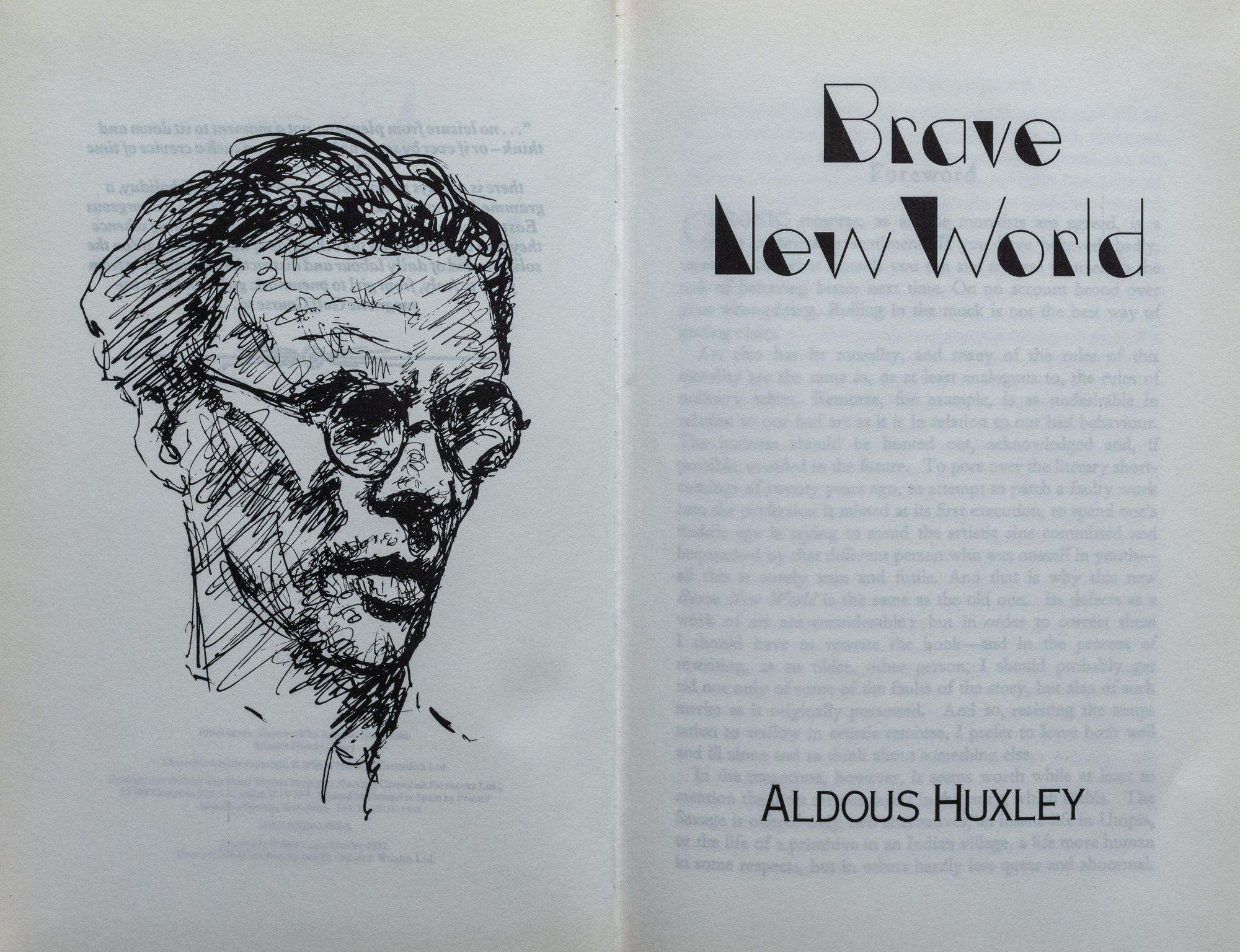Science / Tech
Towards a Brave New World
Huxley’s dystopian novel was a warning, but we are systematically moving in the direction he indicated.

Dog owners can tell when their pets are bored. They are aware of the satisfaction an animal experiences when carrying out something they learned earlier, even if it’s just coming to heel. Some dogs encourage their owners to engage in demanding activities that are sometimes difficult to even call fun. Thanks to their work, rescue dogs became heroes of the rescue operation during the earthquake in Turkey and Syria in 2023. It is not only thanks to the rewards received from their trainer that animals can perform difficult, complex, and often unnatural activities. Learning new skills and controlling one’s own behaviour, and therefore that of the environment, is associated with a level of satisfaction that is as rewarding as receiving treats and stroking.
This satisfaction is common to animals and humans. It is experienced by a child who takes his first steps, a tennis player who has mastered a new stroke, a poet who has found an apt metaphor, or a carpenter who has finished working on an exceptional piece of furniture. It was experienced by ancient hunters tracking game and gatherers storing food, farmers cultivating fields, and commanders leading troops into battle. Experiencing satisfaction from one's own actions and their effect on reality is at least as immanent to our nature as satisfying hunger. Homo sapiens has achieved excellence through perfecting our own actions, as evidenced by the greatest works of art and achievements of science.
Understanding Satisfaction
Psychologists have long tried to understand what pushes people to such actions and why they do not give up despite the enormous effort required. One of the first empirical attempts to study this phenomenon was made in the mid-20th century by David McClelland, as a result of which he created his concept of achievement motivation, and discovered that it is the pursuit of perfection, and not external motives, that pushes people to work the hardest. What is interesting is that, during his research, he also discovered that in countries with a high intensity of achievement motivation, the economy prospers significantly better than in those where the motivation to avoid failure overrides achievement motivation. Over time, it turned out that—as Max Weber had predicted much earlier—a factor conducive to the formation of achievement motivation is the Protestant work ethic. This was indicated not only by significant differences in economic development between Protestant and Catholic countries. The researcher also discovered that in highly developed countries, fairy tales, legends, and stories told to children are much more deeply imbued with themes of striving for perfection and achievement than in those with struggling economies.

Counterintuitive results were obtained in huge studies on life satisfaction by Mihaly Csikszentmihalyi, the creator of the well-known “flow” concept. It turned out that, contrary to what most of us think, the source of the greatest satisfaction and positive emotions experienced in life is... work! Right behind it, in second place, is learning. The biblical verse, “cursed is the ground because of you; through toil you will eat of it all the days of your life” turned out to be a divine gift. The descendants of Adam were able to find the greatest meaning of their lives through this hardship, although Csikszentmihalyi also noticed a certain paradox. For many people, even though work is much more often a source of positive emotions than entertainment, they are also more motivated in finding ways of spending their free time. According to the researcher, a cultural stereotype is responsible for this state of affairs. The social perception of work as an indulgence and a necessary evil makes us more willing to choose activities accompanied by apathy than activities involving effort.
Another surprising result of Csikszentmihalyi's research was the discovery that some people can find meaning in work that may on the surface seem boring, repetitive, and banal. In fact, even in forced situations (such as prison or army camp), some of the respondents were able to structure their situation in such a way that it provided them with positive emotions and they derived satisfaction from what they were forced to do. However, finding meaning in what you do is not always easy.
From Contempt for Work to Work as an Affliction
There have been many periods in human history when work was held in contempt. The ancient Greeks believed that it was the domain of slaves, and that free people should occupy themselves with physical exercise to improve the body and philosophy to improve the mind. However, it is worth considering that in reality this attitude would be impossible without taking away the freedom of most people currently living. Likewise, it would be impossible for many representatives of the aristocracy who lived off the work of their subjects to manifest their disgust of work, even though every bite of food they ate, every sip of wine they took, and every swash of lace decorating their exquisite clothes had its origins in someone else's labour.
The work ethic most often collapsed due to economic factors, wars, and natural disasters. Cultural changes have also contributed to this situation. Deriving job satisfaction in such conditions is extremely difficult. Even if it initially brings satisfaction and joy, work perceived by the environment as exploitation will, under the influence of contempt, quickly become an onerous duty, and the person performing it will be transformed into a loser. The same applies to work performed under duress. At the turn of the 20th and 21st centuries, some psychologists also contributed to the degradation of activities hitherto defined as work.
In 1971, Wayne Oates, a pastor and professor of the psychology of religion, coined the term “workaholism” to describe people addicted to work. For half a century, this concept has gained enormous popularity, even though it has not been classified as a disorder in any of the popular diagnostic manuals, such as the DSM (used mainly in the USA) or the ICD (more popular in Europe). The creators of these textbooks conclude that there is not yet sufficient and unambiguous evidence indicating that behavioural addictions, other than gambling and computer games, can be defined as mental disorders and assigned specific diagnostic criteria. But this has not prevented psychologists from conducting research into workaholism, creating theories of workaholism and constructing diagnostic tools. The spectre of workaholism is a scare mechanism that can drive concerned people to visit the offices of therapists.
A few years later, the concept of work-life balance was created, which stormed through the hearts of generations entering the labour market. It was supposed to be a response to emerging social problems, such as workaholism or professional burnout. In fact, it has strengthened the work-life dualism in our thinking, which clearly shows that the part of our lives that we devote to work is not in fact “life.” At most, it is a sacrifice made for the sake of “life”—that is, that part of time that we call “life.” This was excellently expressed in July 2022 by Zaid Khan, a 24-year-old New Yorker, who stated in a viral TikTok video: “Work is not your life ... Your worth is not defined by your productive output.” He then proposed an approach which he called quiet quitting, which depends on performing only the necessary minimum of one’s duties at work.
Reinventing the Wheel
Creating the concept of work-life balance and popularizing it is as valuable as reinventing the wheel, and in its fairly primitive version at that, although with a great deal of chutzpah. Already in 529 CE, Saint Benedict of Nursia, when founding the oldest Catholic order of monks, formulated its basic rule by using the motto ora et labora—pray and work. Consequently, the Benedictines divided their day into three parts: vita activa (active life, mainly work), vita passiva (rest and sleep), and vita contemplativa (time of prayer, contemplation, spiritual and intellectual development). However, it is worth noting that each of these parts was called vita—life. They did not oppose this concept. The 19th-century socialist Robert Owen adopted their approach when formulating the postulate: “Eight hours work, eight hours rest, eight hours sleep,” later popularized by his successors.
Both the fear of workaholism and the obsessive pursuit of a work-life balance contribute to the blossoming of concepts such as workism. Its authorship is attributed to Derek Thompson who, in a 2019 Atlantic article titled “Workism Is Making Americans Miserable,” defined it as “a kind of religion, promising identity, transcendence, and community.” Thompson’s essay holds “that work is not only necessary to economic production, but also the centrepiece of one’s identity and life’s purpose, and the belief that any policy to promote human welfare must always encourage more work.” Just like Khan, he calls for the understanding of work as a kind of currency with which we can buy free time.
Similar attitudes are also reflected in local concepts. In Poland, the term kultura zapierdolu (roughly “bullshit culture” or “ball-breaking culture”) is sometimes used to describe work that seems to pose higher demands than those who perform it are prepared to meet. Psychologists and mental trainers do not shy away from it either. They freely give public advice on how not to be exploited and instead offer training on work-life balance. However, I am afraid that this is just another form of flattering public tastes, rather than the result of conscious reflection.
Confucius in the Workism Culture
Confucius is credited with the wise thought: “Choose a job you love, and you will never have to work a day in your life.” Likewise, in his 1843 work Past and Present, the Scottish philosopher Thomas Carlyle wrote: “Blessed is he who has found his work; let him ask no other blessedness.” All those individuals studied by Csikszentmihalyi, who were able to find some meaning in boring and repetitive work, even under conditions of compulsion, would certainly have agreed.
However, finding our dream job in a community where above-average commitment to work is defined as an addiction, or at best a religion, will we be able to fearlessly devote ourselves to this beloved occupation? Won't we be seen as freaks if we don't join the chorus of happy people shouting “Thank God it’s Friday!” How will we be able to explain to our family and friends that we devote more attention to the work we love than to them?
And even if we have enough independence to lose ourselves in our work, regardless of the opinions of those around us, won’t this result in conflicts and lead to ostracism? Will very young people who take Confucius's advice seriously, be able to resist social pressure if the majority around them claims that excessive involvement in work is subordination to workism? In an environment of such widespread reluctance to work, won’t those who are most frustrated among the employees take over the role of leaders? After all, according to Gallup, only 23 percent of employees worldwide are engaged at their job. That number is falling by the year.
However, these threats to employees are nothing compared to those that employers and managers will be forced to take into account. Will they be able to ask their employees to deal with an urgent unplanned complaint for a key client without exposing the company to accusations of workism or “ball-breaking culture”? And what about the employee who works slower than the others? Wouldn't drawing attention to them in order to improve efficiency expose the manager to accusations of intolerance for neurodiversity, or worse, bullying? What to do when a task which must be finished on time is discontinued by an employee at 4pm? Should you finish it for them, risking being accused of exerting psychological pressure, or should you abandon it, risking the client's dissatisfaction? And what will all those enterprising enthusiasts do? Would an analysis of labour market conditions not lead them to self-censorship, and dismiss their ideas as tilting at windmills? Where is the boundary of work culture, who determines it, and how fluid is it?
Towards a Brave New World
Decades of communism, which often mandated hard, senseless, and inefficient work, did not manage to kill the work ethos among its people. This was shown by the period of political transformation, during which, inhabitants of post-communist countries were able to find the meaning of life in work, rediscover motivation for achievements, and feel satisfaction from having an effect on reality. Currently, taking advantage of the freedom gained, the inhabitants of these countries are probably using the work ethos more willingly and effectively than ever before.
The challenges humanity faces today require people who are dedicated to resolving social and political conflicts, and who will tirelessly search for technologies that will reverse the effects of the ecological degradation and for ways to overcome demographic crises. Will they come from the generation that denigrates the search for the meaning of life in work? Will they emerge from the mass of those focused on quiet quitting, obsessively searching for and maintaining a work-life balance, and ensuring themselves ever more entertainment? Will the accumulated social capital of contempt for work not crush them sooner than they show themselves?

Like most authors of dystopian fiction, Aldous Huxley intended Brave New World as a warning. Nevertheless, we are systematically moving in the direction he indicated. We have certainly achieved this in the consumption of communal entertainment, communal pleasures, and ambitions pursued at work. Those who continue to deviate from cultural norms requiring contempt for work will soon die out.
Should remuneration for work be replaced by universal basic income, it will surely come as a relief to all believers in the dogma of the separation of work and personal life. Most of us will receive UBI to prevent us from doing what machines can do much better than us. This income will buy us even more mass entertainment and trivial pleasures that ensure we remain in a state of apathy. We will continue to lament the growing wave of depression and an increase in the number of suicides, and look for the meaning of life in self-development courses and the offices of therapists, because no one will think of finding it at work. Some of us will satisfy its lack for a time by travelling, fishing, yoga, Buddhism, or psychedelics. Only a select few of us will work. Perhaps there will come a time when we will start to envy them. Or maybe those of us who observe animals will start to wonder where they derive so much joy and contentment.





